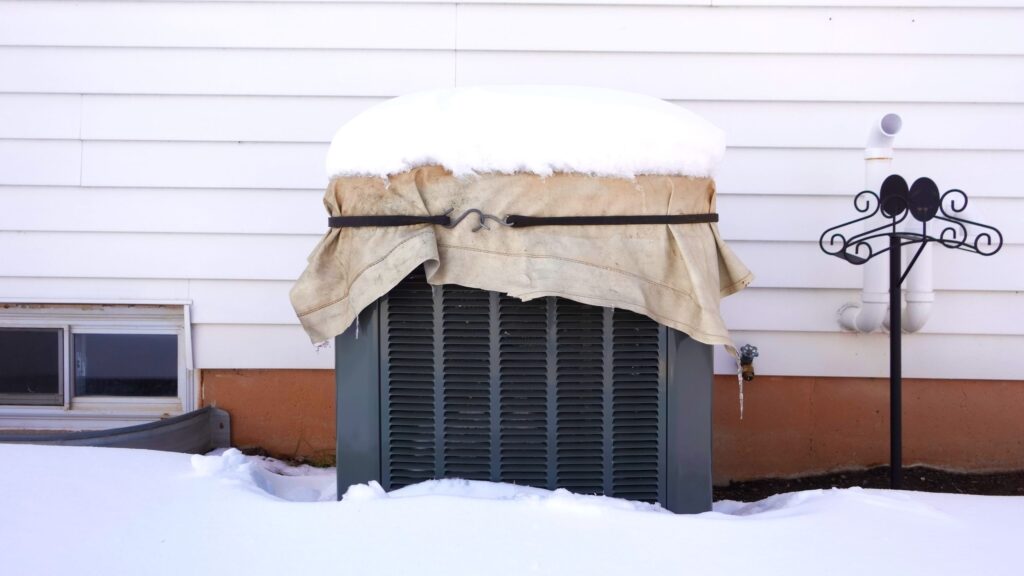When the cold weather arrives, you might think it’s a good idea to cover your AC unit, protecting it from the dropping temperature. But covering it up might actually be a terrible idea, for several reasons.
By placing a cover over your unit, you’re putting it at risk of excess moisture trapped inside, and you’re also creating the perfect environment for rust, erosion, and mold growth.
You may like
With all these setbacks, I put the question to a HVAC expert — is it really a good idea, and what should we be doing to look after our AC units over the winter months instead?
Should I cover my AC unit in winter?
(Image credit: Shutterstock)
“We generally do not recommend covering your AC unit or heat pump during winter,” says DR Richardson, Co-Founder and CEO of Elephant Energy.
“Instead, we advise homeowners to focus on winter readiness, maintenance, and system efficiency.”
Why? Well, firstly, if you’re covering up your AC unit, you’re restricting its airflow, creating a great environment for mold to grow. And by trapping the humidity inside, you’re also putting your AC unit at risk of rust and erosion.
The AC unit cover also provides a lovely warm and dark place for outside critters to hide over winter. By using a cover then, you might be making a very costly mistake. Fortunately, while AC covers might not be the answer you’re looking for, there’s plenty of winter prep you can do instead.
How to look after AC units in the winter
(Image credit: Shutterstock)
The best way to look after your AC unit over the winter is to do a mixture of prep work and maintenance, which should be common practice. Elephant Energy suggest the following tips, as well as common issues to look out for:
- Clean the unit: Remove dirt, leaves, and debris from the outdoor coil to maintain heat transfer efficiency. Keep the area clear of snow and debris
- Clean/replace filters: This should be done every 1-3 months (4-6 for larger filters) to make sure they’re working efficiently
- Preload heat: If you notice the temperature is about to drop outside, consider bumping up the temperature of your AC unit the day before and then dropping it back down
- Maintain consistent temperature: Other than a quick bump, the thermostat should sit at a consistent temperature for optimal heat pump efficiency
- Air sealing and insulation: Air sealing and insulation are crucial for maximizing HVAC system efficiency, resolving hot and cold room issues, and reducing air leakage
If you’re looking to protect your AC unit this winter then, Richardson advises: “Ultimately, the best way to protect your AC or heat pump system in winter is through routine maintenance and smart usage.
“If you’re unsure about your system’s winter readiness, consult a qualified HVAC professional.”
Follow Tom’s Guide on Google News and add us as a preferred source to get our up-to-date news, analysis, and reviews in your feeds.
More from Tom’s Guide
Today’s best smart air conditioner deals

